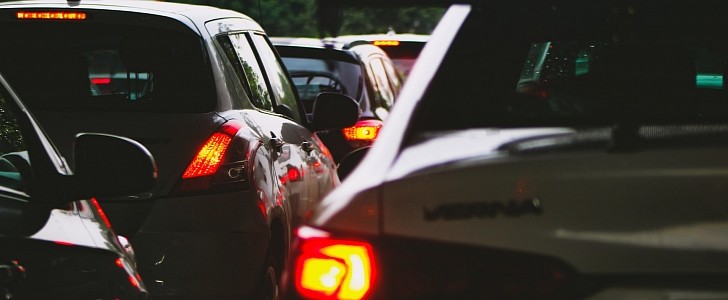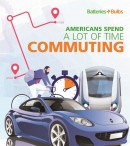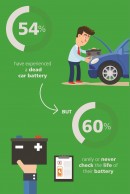A survey on commuting and flexible working has led analysts to believe that hybrid work could lead to turning the rush hour into a thing of the past, but that may not be good news. The survey was conducted by Yonder on behalf of Wagonex, and it polled 1,000 working-age Brits. But why would the end of the rush hour be a negative thing? It's complicated.
First, let's get back to the survey results, and then I can explain my point on the matter. The survey found that 37 percent of respondents expect to work or study remotely more often in the future when compared to before the pandemic.
Respondents aged between 18 and 34 are significantly more likely to want to work or study remotely more often in the future, but even those aged 45 to 54, along with those aged 55 to 64 years old, are interested in working remotely more often in the future.
The study also found that wealthier respondents are more likely to expect to work or study remotely more in the future. Curiously, the survey found that only 38 percent of those working in the private sector were likely to prefer to work or study remotely in the future. Meanwhile, 52 percent of respondents employed in the public sector expressed their intention for more remote work in the future.
So, what is the link between rush hour and flexible working? Hybrid or flexible work schedules could lead to killing "rush hour" traffic. While that may seem great, you will not like what might happen without it. Analysts believe that the end of the traditional rush hours might lead to unpredictable surges in public transport.
Secondly, the survey also found that half of the respondents expect to commute to and from work or their place of study by car. At least, that will be their primary means of transportation. Since more than half of all respondents showed interest in remote work, it would mean that fewer and fewer people would commute to and from their workplaces.
And this is the part where I think that “killing the rush hour” is not necessarily good news for anyone. While the survey was conducted in the UK, most countries in the world switched to remote work last year wherever possible.
Traffic was reduced at first, but since people do not have to be at the office every day, many decided to work from remote places with an internet connection. So, they took to the roads, which brought a different kind of traffic, the unforeseeable one.
The entire remote work/study trend proved that meetings could have been emails and that driving to work to spend time in front of a computer is not required.
Evidently, there are many jobs that still need to be done on-site, and we should be grateful to those who work in those fields for their effort during the pandemic. Those employees will still be a part of predictable traffic flow, but unexpected surges in traffic will complicate their existence.
Where will those surges come from? Well, I think people with hybrid or flexible work schedules will try to beat the rush hour by working from an earlier time of day, so they end their tasks earlier and are free to go wherever they please. Unfortunately for them and everyone else, that could mean they will drive right into the 4 pm to 6:30 pm rush hour.
Meanwhile, those wanting to travel the country so that they can work from a café or the balcony of a hotel room from the seaside may try to be spontaneous and start driving at 5 am, and then be a part of the 6 am rush hour in a different part of their country.
Do you see where this is going? While it is nice to know that not everyone needs to be at the office to do their jobs, that does not magically erase traffic jams. But wait, there is more unpleasant news.
As you may have noticed, only half of the survey respondents claimed that their primary means of transportation is a car, which means that there will be unusual and unpredictable “spikes” in public transportation. Each city will have to find ways to cater to the matter, but I think that people will eventually settle for a predictable schedule once the pandemic is over.
If you ask me, more people will try to do the whole remote work thing on Friday so that they can get a head start on the weekend. Unfortunately, if they also want to drive to a destination on that day and work from there, they might find themselves in heavy traffic. Unexpected traffic, mind you. But people will adjust to the new normal. Hopefully.
If this happens more than once to you, I suggest reconsidering your departure time. It is the only solution to reduce the time you spend in traffic. In recent months, whenever I left the city to relax and found heavy traffic, I searched for the nearest nice restaurant or café and spent some time there.
Not being in a hurry for no reason whatsoever (you are on vacation to relax, after all) makes life better, and you will be a safer driver if you are relaxed behind the wheel. This does not work that well with public transportation, but at least you can have your headphones on and watch a movie while you are on the train instead of being angry in traffic.
Respondents aged between 18 and 34 are significantly more likely to want to work or study remotely more often in the future, but even those aged 45 to 54, along with those aged 55 to 64 years old, are interested in working remotely more often in the future.
The study also found that wealthier respondents are more likely to expect to work or study remotely more in the future. Curiously, the survey found that only 38 percent of those working in the private sector were likely to prefer to work or study remotely in the future. Meanwhile, 52 percent of respondents employed in the public sector expressed their intention for more remote work in the future.
So, what is the link between rush hour and flexible working? Hybrid or flexible work schedules could lead to killing "rush hour" traffic. While that may seem great, you will not like what might happen without it. Analysts believe that the end of the traditional rush hours might lead to unpredictable surges in public transport.
Secondly, the survey also found that half of the respondents expect to commute to and from work or their place of study by car. At least, that will be their primary means of transportation. Since more than half of all respondents showed interest in remote work, it would mean that fewer and fewer people would commute to and from their workplaces.
And this is the part where I think that “killing the rush hour” is not necessarily good news for anyone. While the survey was conducted in the UK, most countries in the world switched to remote work last year wherever possible.
Traffic was reduced at first, but since people do not have to be at the office every day, many decided to work from remote places with an internet connection. So, they took to the roads, which brought a different kind of traffic, the unforeseeable one.
The entire remote work/study trend proved that meetings could have been emails and that driving to work to spend time in front of a computer is not required.
Evidently, there are many jobs that still need to be done on-site, and we should be grateful to those who work in those fields for their effort during the pandemic. Those employees will still be a part of predictable traffic flow, but unexpected surges in traffic will complicate their existence.
Where will those surges come from? Well, I think people with hybrid or flexible work schedules will try to beat the rush hour by working from an earlier time of day, so they end their tasks earlier and are free to go wherever they please. Unfortunately for them and everyone else, that could mean they will drive right into the 4 pm to 6:30 pm rush hour.
Meanwhile, those wanting to travel the country so that they can work from a café or the balcony of a hotel room from the seaside may try to be spontaneous and start driving at 5 am, and then be a part of the 6 am rush hour in a different part of their country.
Do you see where this is going? While it is nice to know that not everyone needs to be at the office to do their jobs, that does not magically erase traffic jams. But wait, there is more unpleasant news.
As you may have noticed, only half of the survey respondents claimed that their primary means of transportation is a car, which means that there will be unusual and unpredictable “spikes” in public transportation. Each city will have to find ways to cater to the matter, but I think that people will eventually settle for a predictable schedule once the pandemic is over.
If you ask me, more people will try to do the whole remote work thing on Friday so that they can get a head start on the weekend. Unfortunately, if they also want to drive to a destination on that day and work from there, they might find themselves in heavy traffic. Unexpected traffic, mind you. But people will adjust to the new normal. Hopefully.
If this happens more than once to you, I suggest reconsidering your departure time. It is the only solution to reduce the time you spend in traffic. In recent months, whenever I left the city to relax and found heavy traffic, I searched for the nearest nice restaurant or café and spent some time there.
Not being in a hurry for no reason whatsoever (you are on vacation to relax, after all) makes life better, and you will be a safer driver if you are relaxed behind the wheel. This does not work that well with public transportation, but at least you can have your headphones on and watch a movie while you are on the train instead of being angry in traffic.








